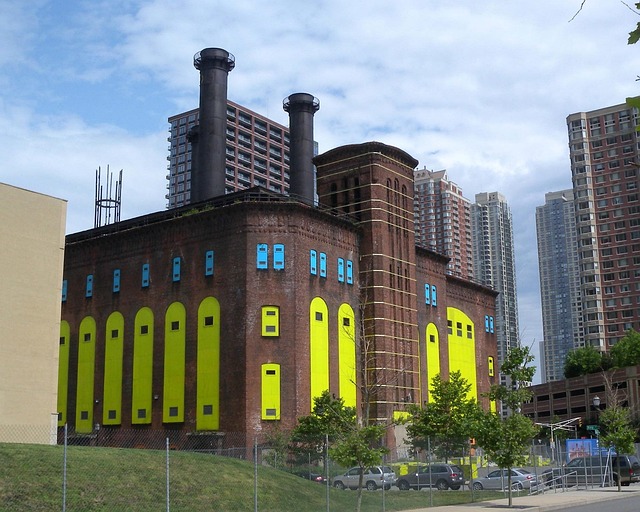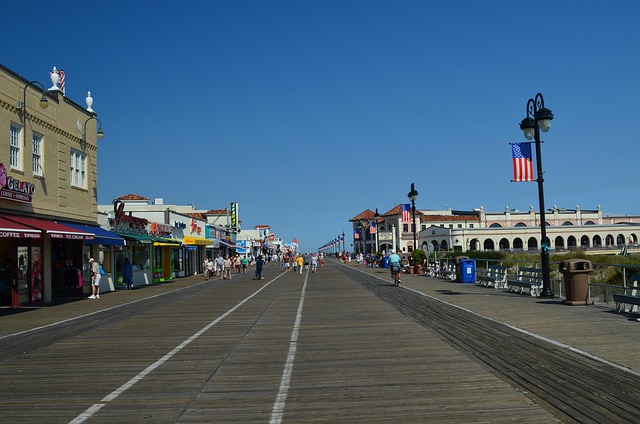The Blackwells Mills Canal in Somerset County, New Jersey, is a historic landmark that once fueled the region's industrial boom. Constructed in the 19th century, it supported a thriving mill industry and significantly contributed to the local economy. Today, the canal and its associated Canal House offer a glimpse into Somerset County's rich industrial heritage, surrounded by lush landscapes and within easy reach of local attractions. The Canal House retains original architectural features from its past as a functional mill structure, with plans for meticulous restoration to adapt it for modern uses while preserving its historical significance.
“Discover the enchanting Blackwells Mills Canal House, nestled in Franklin Township, Somerset County, New Jersey. This historic site, with its rich industrial past, offers a glimpse into the state’s thriving canal era. The article delves into the mill’s architectural marvels and its significant role in shaping NJ’s economic landscape. From its grand structure to the preservation efforts underway, explore how this iconic landmark is being revitalized while honoring its heritage. Experience the magic of Somerset County’s hidden gem.”
- A Historical Glimpse: The Blackwells Mills Canal and its Heritage
- Locating the Canal House in Franklin Township, Somerset County
- Architectural Features and Design of the Mill Structure
- The Role of the Canal in the Industrial Past of New Jersey
- Preserving a Piece of History: Current State and Future Plans
A Historical Glimpse: The Blackwells Mills Canal and its Heritage

The Blackwells Mills Canal, located in Franklin Township, Somerset County, New Jersey, is a significant historical landmark that once played a pivotal role in the region’s industrial and economic landscape. This canal, constructed in the 19th century, was part of a larger network connecting major cities and facilitating the transport of goods. It served as a vital transportation route for decades, enabling the thriving mill industry in the area to flourish.
The heritage of Blackwells Mills Canal dates back to when it was a bustling hub for commerce and trade. The surrounding region, rich in natural resources, attracted entrepreneurs who established numerous mills along its banks. These mills produced a variety of goods, from textiles to lumber, contributing significantly to the local economy. Today, the canal remains a tangible link to Somerset County’s past, offering a glimpse into its industrial heritage for both locals and visitors alike to explore and appreciate.
Locating the Canal House in Franklin Township, Somerset County

Nestled in the heart of Franklin Township, Somerset County, New Jersey, lies a hidden gem—The Blackwells Mills Canal House. This charming property offers a unique glimpse into the region’s rich history, dating back to the industrial revolution. The township’s serene setting provides a peaceful retreat while placing visitors within easy reach of local attractions and natural beauty spots.
Franklin Township boasts a vibrant community surrounded by lush landscapes, making it an ideal destination for those seeking a blend of tranquility and accessibility. The Canal House itself stands as a testament to the area’s past, with its strategic location along the historic Blackwells Mills canal, offering both scenic views and a fascinating journey through time for visitors exploring Somerset County, NJ.
Architectural Features and Design of the Mill Structure

The architectural features of the Blackwells Mills Canal House in Franklin Township, NJ, reflect its rich history as a functional mill structure. Located in Somerset County, New Jersey, this historic building showcases a blend of traditional design elements and practical considerations tailored to its purpose. The exterior retains many original characteristics, including sturdy brick construction and tall windows that once allowed natural light to flood the work spaces below.
The interior layout is designed with efficiency in mind, featuring large open rooms that facilitated the bustling activities of a working mill. Original wooden beams, some dating back to the 1800s, support the ceiling, providing a glimpse into its industrial past. The structure’s design also incorporated practical elements such as multiple entrances and loading docks to accommodate the constant flow of goods and people, a testament to Somerset County’s rich agricultural and industrial heritage.
The Role of the Canal in the Industrial Past of New Jersey

The Blackwells Mills Canal House in Franklin Township, NJ, stands as a remnant of Somerset County’s industrial past, deeply rooted in its rich history as a bustling hub for manufacturing and commerce. The canal system played a pivotal role in shaping this region’s economic landscape during the late 18th and 19th centuries. This intricate network facilitated the transportation of goods, linking various towns and industries along its route.
Somerset County benefited immensely from this water-based infrastructure, which enabled efficient movement of raw materials and finished products. The canal facilitated the growth of mills, factories, and other industrial establishments, making New Jersey a prominent player in the nation’s economic scene. Today, the Blackwells Mills Canal House serves as a tangible link to this era, preserving the memories and legacy of Somerset County’s industrious beginnings.
Preserving a Piece of History: Current State and Future Plans

The Blackwells Mills Canal House in Franklin Township, NJ, stands as a resilient remnant of Somerset County’s industrial past. This historic structure, once humming with the sounds of machinery and the bustling activity of canal traffic, now serves as a quiet testament to the region’s rich heritage. Today, efforts are underway to preserve this piece of local history for future generations, ensuring its place as a cultural landmark in Somerset County New Jersey.
Future plans for the Blackwells Mills Canal House involve meticulous restoration, aiming to revive its former glory while adapting it for modern uses. The goal is to create a multi-purpose space that showcases the area’s historical significance and attracts visitors interested in experiencing the region’s unique tapestry. By blending preservation with innovation, this project promises to breathe new life into an enduring symbol of Somerset County’s industrial heritage.
